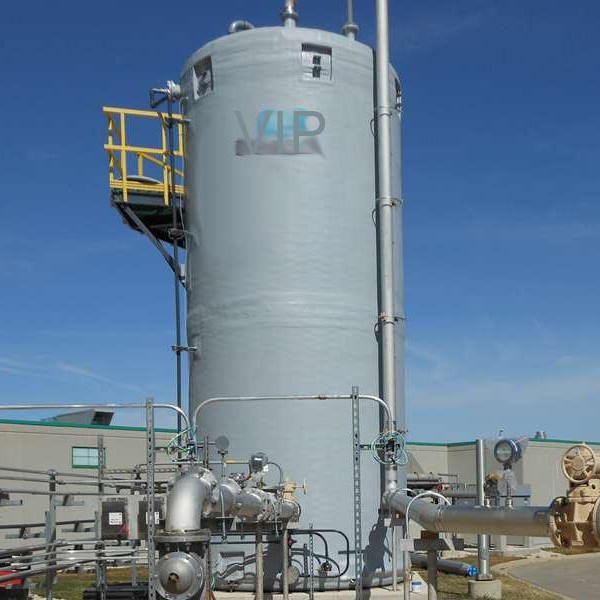
-
 Afrikaans
Afrikaans -
 Albanian
Albanian -
 Amharic
Amharic -
 Arabic
Arabic -
 Armenian
Armenian -
 Azerbaijani
Azerbaijani -
 Basque
Basque -
 Belarusian
Belarusian -
 Bengali
Bengali -
 Bosnian
Bosnian -
 Bulgarian
Bulgarian -
 Catalan
Catalan -
 Cebuano
Cebuano -
 China
China -
 China (Taiwan)
China (Taiwan) -
 Corsican
Corsican -
 Croatian
Croatian -
 Czech
Czech -
 Danish
Danish -
 Dutch
Dutch -
 English
English -
 Esperanto
Esperanto -
 Estonian
Estonian -
 Finnish
Finnish -
 French
French -
 Frisian
Frisian -
 Galician
Galician -
 Georgian
Georgian -
 German
German -
 Greek
Greek -
 Gujarati
Gujarati -
 Haitian Creole
Haitian Creole -
 hausa
hausa -
 hawaiian
hawaiian -
 Hebrew
Hebrew -
 Hindi
Hindi -
 Miao
Miao -
 Hungarian
Hungarian -
 Icelandic
Icelandic -
 igbo
igbo -
 Indonesian
Indonesian -
 irish
irish -
 Italian
Italian -
 Japanese
Japanese -
 Javanese
Javanese -
 Kannada
Kannada -
 kazakh
kazakh -
 Khmer
Khmer -
 Rwandese
Rwandese -
 Korean
Korean -
 Kurdish
Kurdish -
 Kyrgyz
Kyrgyz -
 Lao
Lao -
 Latin
Latin -
 Latvian
Latvian -
 Lithuanian
Lithuanian -
 Luxembourgish
Luxembourgish -
 Macedonian
Macedonian -
 Malgashi
Malgashi -
 Malay
Malay -
 Malayalam
Malayalam -
 Maltese
Maltese -
 Maori
Maori -
 Marathi
Marathi -
 Mongolian
Mongolian -
 Myanmar
Myanmar -
 Nepali
Nepali -
 Norwegian
Norwegian -
 Norwegian
Norwegian -
 Occitan
Occitan -
 Pashto
Pashto -
 Persian
Persian -
 Polish
Polish -
 Portuguese
Portuguese -
 Punjabi
Punjabi -
 Romanian
Romanian -
 Russian
Russian -
 Samoan
Samoan -
 Scottish Gaelic
Scottish Gaelic -
 Serbian
Serbian -
 Sesotho
Sesotho -
 Shona
Shona -
 Sindhi
Sindhi -
 Sinhala
Sinhala -
 Slovak
Slovak -
 Slovenian
Slovenian -
 Somali
Somali -
 Spanish
Spanish -
 Sundanese
Sundanese -
 Swahili
Swahili -
 Swedish
Swedish -
 Tagalog
Tagalog -
 Tajik
Tajik -
 Tamil
Tamil -
 Tatar
Tatar -
 Telugu
Telugu -
 Thai
Thai -
 Turkish
Turkish -
 Turkmen
Turkmen -
 Ukrainian
Ukrainian -
 Urdu
Urdu -
 Uighur
Uighur -
 Uzbek
Uzbek -
 Vietnamese
Vietnamese -
 Welsh
Welsh -
 Bantu
Bantu -
 Yiddish
Yiddish -
 Yoruba
Yoruba -
 Zulu
Zulu
fiberglass products for steel smelting plant
The Role of Fiberglass Products in Steel Smelting Plants
Fiberglass products have become essential components in the modern steel smelting industry due to their unique properties and benefits. The steel smelting process is energy-intensive and involves extreme temperatures, making the choice of materials crucial for operational efficiency, safety, and durability. This article will explore the various applications of fiberglass products in steel smelting plants and how they contribute to enhanced performance and sustainability.
The Importance of Durability and Resistance
Steel smelting involves the use of furnaces that can reach temperatures upwards of 1600 degrees Celsius. At these temperatures, traditional materials may fail without adequate protection or insulation. Fiberglass products, known for their excellent thermal insulation properties, are able to withstand high temperatures and corrosive environments. Unlike metals, fiberglass does not oxidize, making it a superior option for lining furnaces and other high-temperature equipment where heat retention is vital.
Moreover, fiberglass is resistant to chemical corrosion. In a steel smelting plant, various chemicals and slag can compromise structural integrity over time. Using fiberglass as a protective lining or in secondary containment systems offers an additional barrier that enhances the lifespan of equipment and minimizes maintenance costs. This durability not only serves to extend the life of infrastructure but also reduces the frequency and costs associated with repairs and replacements.
Enhanced Safety Features
Safety is paramount in steel smelting operations. The presence of extreme temperatures, toxic fumes, and heavy machinery creates a hazardous working environment. Fiberglass products contribute to improved safety standards. For instance, fiberglass reinforced plastics (FRP) are often utilized in the construction of ladders, platforms, and walkways within smelting plants. These materials are lightweight yet strong, reducing the risk of accidents related to heavy equipment handling.
Additionally, fiberglass is a non-conductive material, which significantly reduces the risk of electrical hazards in an environment laden with metal components
. The use of insulated handles and tools made from fiberglass can prevent electrocution, thereby safeguarding workers and enhancing overall workplace safety.fiberglass products for steel smelting plant

Lightweight and Cost-Effective Solutions
In the realm of industrial materials, weight is a critical consideration. The lightweight nature of fiberglass products allows for easier maneuverability and installation, which can lead to reduced labor costs. Reduced weight also means that transportation of equipment and materials within the plant can be done more efficiently, saving both time and resources.
Furthermore, the cost-effectiveness of fiberglass extends beyond its initial price. Although the upfront cost may be competitive with traditional materials, the long-term savings attributed to lower maintenance, reduced downtime, and increased durability can make fiberglass a more economical choice over the lifespan of a steel smelting plant's operations.
Environmental Considerations
Sustainability is becoming increasingly important in the industrial sector. Fiberglass materials are often manufactured with a focus on reducing environmental impact. Many fiberglass products are recyclable, and their durability leads to less waste generated from replacements. Furthermore, better insulation properties contribute to energy efficiency, reducing the overall energy consumption of steel smelting operations.
Conclusion
The integration of fiberglass products into steel smelting plants is a clear indication of innovation in material science aimed at enhancing operational efficiency and safety. The exceptional properties of fiberglass—such as high-temperature resistance, corrosion durability, and lightweight nature—position it as a vital resource for addressing the challenges faced in the steel smelting industry. As the demand for sustainable practices grows, the continued adoption of fiberglass in steel smelting will likely play a significant role in shaping a more efficient and environmentally friendly future for steel production.
Latest news
-
Exploring the Benefits of Top Hammer Drifter Rods for Enhanced Drilling PerformanceNewsJun.10,2025
-
High-Precision Fiberglass Winding Machine for GRP/FRP Pipe Production – Reliable & Efficient SolutionsNewsJun.10,2025
-
FRP Pipes & Fittings for Shipbuilding - Corrosion-Resistant & LightweightNewsJun.09,2025
-
Premium FRP Flooring Solutions Durable & Slip-ResistantNewsJun.09,2025
-
Premium Fiberglass Rectangular Tanks Durable & Lightweight SolutionNewsJun.09,2025
-
Tapered Drill String Design Guide Durable Performance & UsesNewsJun.09,2025









